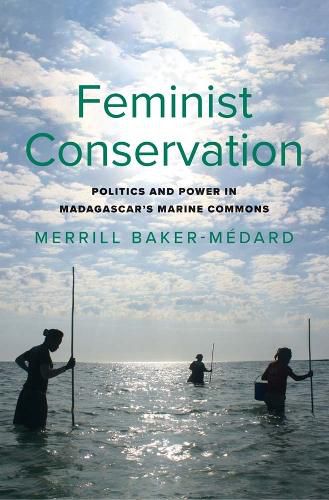Readings Newsletter
Become a Readings Member to make your shopping experience even easier.
Sign in or sign up for free!
You’re not far away from qualifying for FREE standard shipping within Australia
You’ve qualified for FREE standard shipping within Australia
The cart is loading…






How access to and control over marine resources in Madagascar are negotiated, and the inextricable link between equity and sustainability
As marine conservation becomes an increasingly urgent issue around the world, there is an equally critical need to understand the ways different conservation interventions attend to or exacerbate social inequality. This book explores the origins of a conservation agenda in Madagascar and the consequences of its neglect of gender.
Drawing on interviews, ecological and social surveys, archival research, and several years of living with fishers in Madagascar, Merrill Baker-Medard examines how access to and control over marine resources are negotiated from fishing villages to the conference rooms of international meetings. Her intersectional approach bridges conservation science, gender studies, and human geography to advance the idea that equity and sustainability are inextricably linked and that practices of reciprocity, accountability, and care are foundational to their achievement.
$9.00 standard shipping within Australia
FREE standard shipping within Australia for orders over $100.00
Express & International shipping calculated at checkout
How access to and control over marine resources in Madagascar are negotiated, and the inextricable link between equity and sustainability
As marine conservation becomes an increasingly urgent issue around the world, there is an equally critical need to understand the ways different conservation interventions attend to or exacerbate social inequality. This book explores the origins of a conservation agenda in Madagascar and the consequences of its neglect of gender.
Drawing on interviews, ecological and social surveys, archival research, and several years of living with fishers in Madagascar, Merrill Baker-Medard examines how access to and control over marine resources are negotiated from fishing villages to the conference rooms of international meetings. Her intersectional approach bridges conservation science, gender studies, and human geography to advance the idea that equity and sustainability are inextricably linked and that practices of reciprocity, accountability, and care are foundational to their achievement.